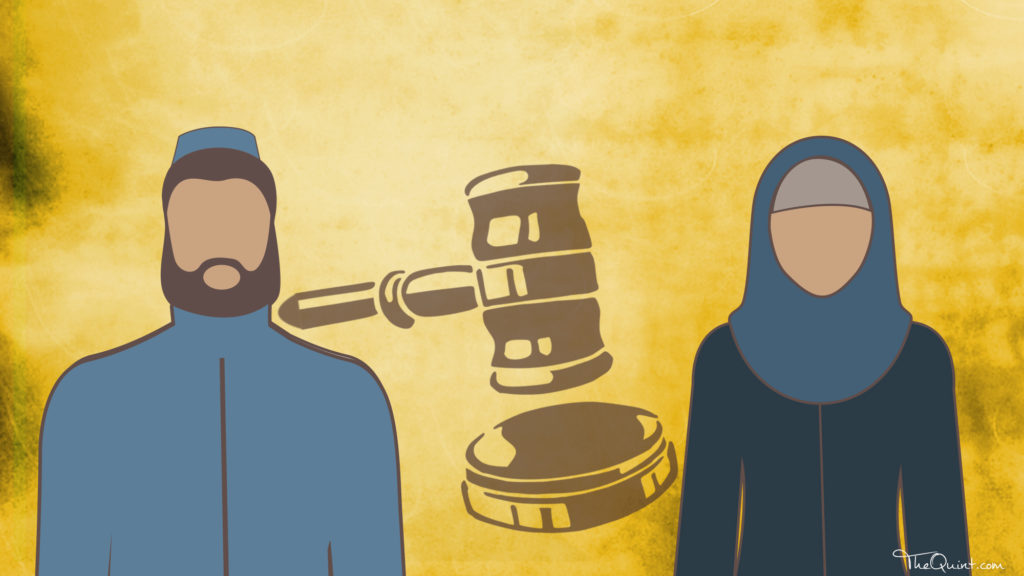
Making Laws Symmetrical – The Case of Triple Talaq
Legal symmetry is an important principle, but the society is not symmetrical and often times there is a need for social laws. The civil and political rights are the essence of the Constitution, but the social laws are not immune from the influence of the political processes that includes the legislatures at the center of it.
Social laws have an important function in which the state intervenes to make the wrongs between two individuals right, and where can it be more applicable, if not in the institutions of marriage. The bigger question in the debate over the Triple Talaq is the nature of marriages. Are the marriages secular or religious? This is the heart of the matter.
In the Muslim marriages, the triple talaq causes serious handicap for the Muslim women, but such is the case with the “Hindu” marriages. Firstly, the Hindu marriages restrict the women from marrying outside the caste. There is no choice in the “Hindu” religion to protect women from marriages outside their “caste” and that is the reason why India sees so many cases of the atrocities.
In India, the marriages are dictated by the caste system. Now detractors will argue that the caste system is voluntary and not mandatory. Though such is the case legally, socially it is not so. The religious ideas, notion, and culture are stronger than the law and therefore is a need for social laws. The media is celebrating the judgment of the Supreme Court over the verdict on triple talaq, but the same media is averse to the reforms within the Hinduism.
India is yet to see a nationwide debate on evils of the caste system and the possible remedies on ending the caste system. The end of caste system is linked with the liberation of women as it is the control over the sexuality of the women that keep the caste system alive. The marriages in the “Hindu” society are not equal, just like the marriages in the “Muslim” society and hence there is a need of comprehensive framework of social laws that will liberate all the women irrespective of their religion.
The Hindu Code Bill could do a great service to the “non-Muslim” women is beyond doubt, but then, why social evil likes dowry, early marriages, and killings over cross-caste marriages are still prevalent in the country.
Can the state intervene? It must. Looking at the way RSS/BJP Government was moving fast to celebrate the verdict, it must move now onto reforming Hinduism and if it can do that it will be a great service to the people of India.
Reforming Hinduism will entail ending the “reservation” of Brahmins from the temples and making community priest of any temple. This will liberate Hinduism from the clutches of the dominance of one caste.
The OBCs, STs, and SCs should be through the intervention of the state policies made to enter into the business world. The women who go for cross-caste marriages should be given special protections. Legally, the laws of the country are symmetrical, but the constitution also introduced “asymmetry” to bring in symmetry. The caste system is the biggest contradiction and it must be removed at once.
Celebrating the Triple Talaq verdict just to fuel the communal sentiments can be politically important for RSS/BJP, but letting the larger society rot in the muck of the caste system for the monopoly of the “Brahmins” is the murder of the democracy itself.
Author – Mangesh Dahiwale, Human Rights Activist
Dalits need to divorce – Brahma, Vishnu, and Mahesh. This is what would be the real #TripleTalaq.
Read also – Somebody Please Save Hindu Women


+ There are no comments
Add yours